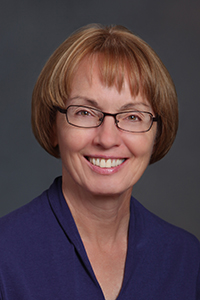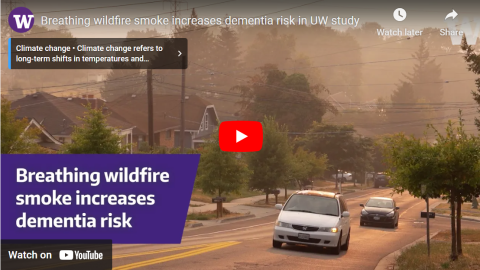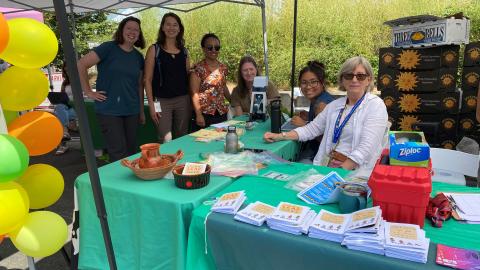The United Nations' most comprehensive report on the global environment since 2012 finds human activities are damaging the environment at a pace that is endangering the "ecological foundations of human society and natural systems."
The UN's sixth Global Environment Outlook adds to a growing body of evidence that the world is on an unsustainable path unless urgent action is taken at every level of society.
Kristie Ebi, professor in the UW Department of Environmental & Occupational Health Sciences (DEOHS) and in Global Health, is one of more than 250 scientists and experts from more than 70 countries who contributed to this landmark assessment. She served as an external reviewer whose climate change research was cited as part of the report.

Weighing risks vs benefits
Policymakers will need to do a careful balancing act as they work to address climate change without causing harm to people's lives and livelihoods, Ebi said.
"As an example, one option to reducing carbon emissions is more extensive use of biofuels. But some research suggests that increasing the land used for biofuels could reduce the amount of land available for agriculture, which could affect food insecurity for the poor," Ebi told CNN this week.
"Decision-makers should ensure that the options implemented to reduce greenhouse gas emissions do not create new challenges. All the benefits and harms of a policy should be taken into consideration."
Climate science expertise
Ebi was a lead author on a report released last fall by the UN's Intergovernmental Panel on Climate Change (IPCC) looking at the impacts of global warming of 1.5 degrees Celsius (2.7 F) above pre-industrial levels.
She and DEOHS Associate Professor Jeremy Hess are among four UW researchers who will serve as expert authors and review editors for the IPCC's sixth assessment report on the state of the science on climate change, expected to be completed in 2021.




